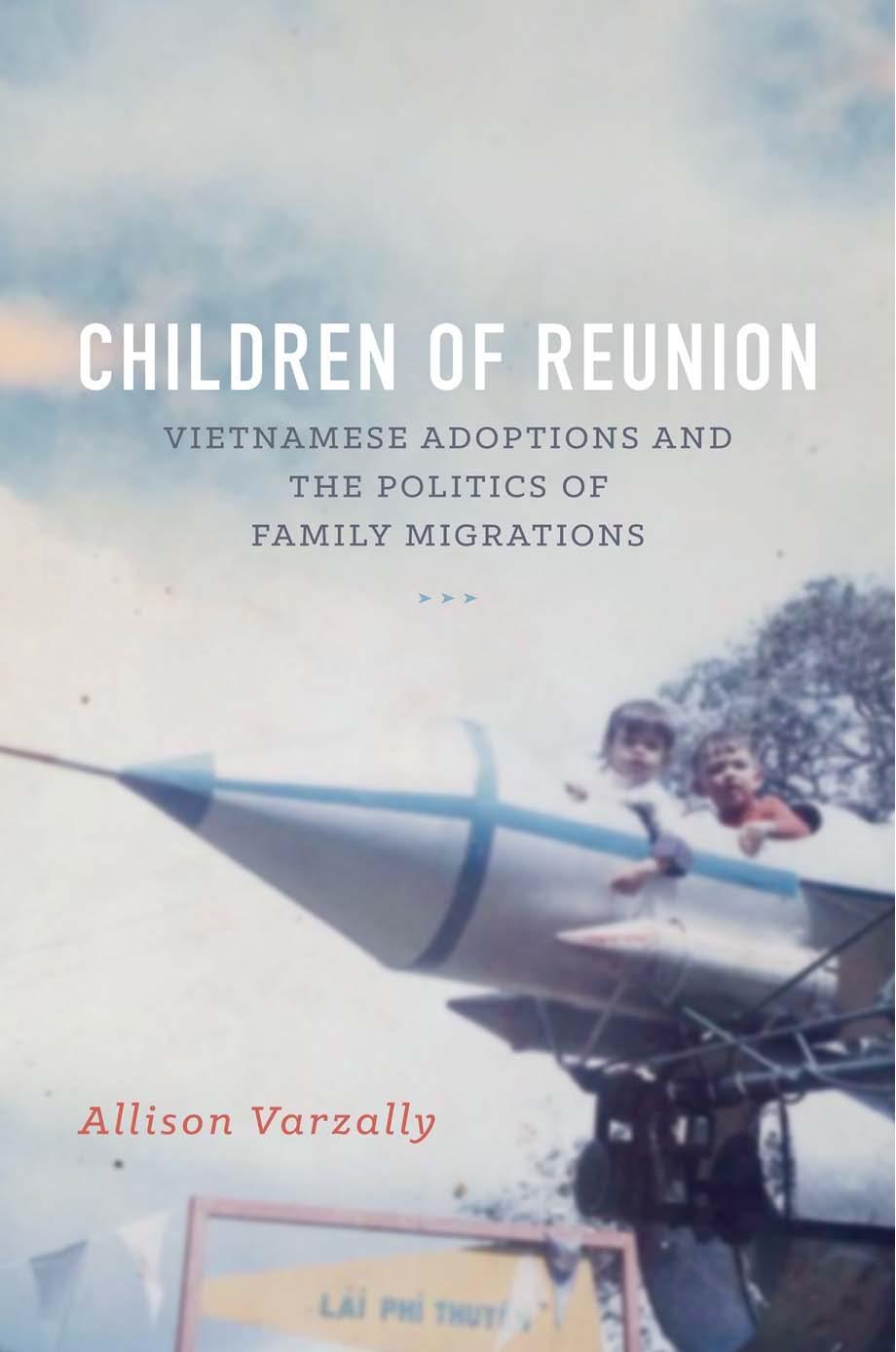Children of Reunion: Vietnamese Adoptions and the Politics of Family Migrations by Allison Varzally

Author:Allison Varzally
Language: eng
Format: epub, pdf
Tags: Family & Relationships, Adoption & Fostering
Publisher: University of North Carolina Press
Published: 2017-01-15T00:56:28.571000+00:00
Merrie Li holding baby sister, Marie; brother, Brandon (front); Tony (back left); Tung (back right) and their mother, Lieu (left). Courtesy of Merrie Li Camp.
To satisfy its promise to welcome Amerasians as a special group of immigrants straddling the line between stranger and family member, the United States offered resettlement services at fifty-two sites spread across the United States for the nearly two-thirds of Amerasians who did not have Vietnamese relatives ready to receive them after their tenure at the PRPC, among the busiest of camps housed on U.S. military bases to contain and prepare Southeast Asian refugees since the mid-1970s (others were located in Guam; Thailand; Wake Island; Camp Pendleton, California; Eglin Air Force Base, Florida; Fort Indiantown Gap, Pennsylvania; and Fort Chaffee, Arkansas). Amerasians rode the edge of a larger wave of more than a million refugees who received temporary asylum in Southeast Asia between 1970 and 1988 before being resettled in twenty countries, including the United States, which accepted 56 percent of the total.73 As early as 1989, veterans groups and other interested parties complained about the inability of Amerasians and their families to come directly to the United States, arguing that time spent at the PRPC promoted misperceptions and unnecessarily delayed the integration of people who were not conventional refugees. Some teachers at the camps remarked on a perceived difference between the deference of earlier refugees and the insolence of the Amerasians, comments that highlighted strains at the camp and the construction of Amerasians as a distinct group expected to demonstrate gratitude and subservience.74 Complaints about the PRPC’s work with Amerasians compounded those made by Vietnamese and their advocates who had doubted its educational and cultural efforts for over a decade and spotlighted the tension between the privileged position of entry enjoyed by refugees and the reality of their internment in camps operated by the U.S. military. Although refugees fashioned forms of family and community life within these barren spaces of detainment and countered ideas of U.S. benevolence, they still grieved their dislocation and chafed under their restrictions. The United States may have insisted that humanitarian rather than political or military priorities motivated its evacuation of Vietnamese, but many Vietnamese leaders and members of a repatriation movement centered in Guam charged that the United States’ efforts were a thinly veiled attempt to continue to meddle in Vietnam’s affairs.75
After approximately six months, most Amerasians and their relatives were released from the military camp and relocated to cities chosen by the Department of Health and Human Services because of their supposed abundance of resources: affordable housing, relevant jobs, and a core of previously resettled Vietnamese. Voluntary agencies (“volags”)—nongovernmental organizations authorized by the federal government—coordinated food, clothes, shelter, counseling, and sponsors.76 Some Amerasians remembered appreciating such offerings, struck by the contrast between conditions in Vietnam and the United States. United States Catholic Charities, one of the most active volags, gave Jimmy Miller, his mother, and his siblings a furnished apartment with a fully stocked kitchen, where, he recalled, they had “enough for us to get by.
Download
Children of Reunion: Vietnamese Adoptions and the Politics of Family Migrations by Allison Varzally.pdf
This site does not store any files on its server. We only index and link to content provided by other sites. Please contact the content providers to delete copyright contents if any and email us, we'll remove relevant links or contents immediately.
| African-American Studies | Asian American Studies |
| Disabled | Ethnic Studies |
| Hispanic American Studies | LGBT |
| Minority Studies | Native American Studies |
Cecilia; Or, Memoirs of an Heiress — Volume 1 by Fanny Burney(32558)
The Great Music City by Andrea Baker(32019)
Cecilia; Or, Memoirs of an Heiress — Volume 2 by Fanny Burney(31956)
Cecilia; Or, Memoirs of an Heiress — Volume 3 by Fanny Burney(31942)
We're Going to Need More Wine by Gabrielle Union(19046)
All the Missing Girls by Megan Miranda(16027)
Pimp by Iceberg Slim(14507)
For the Love of Europe by Rick Steves(14121)
Bombshells: Glamour Girls of a Lifetime by Sullivan Steve(14075)
Talking to Strangers by Malcolm Gladwell(13370)
Norse Mythology by Gaiman Neil(13365)
Fifty Shades Freed by E L James(13241)
Mindhunter: Inside the FBI's Elite Serial Crime Unit by John E. Douglas & Mark Olshaker(9343)
Crazy Rich Asians by Kevin Kwan(9292)
The Lost Art of Listening by Michael P. Nichols(7506)
Enlightenment Now: The Case for Reason, Science, Humanism, and Progress by Steven Pinker(7313)
The Four Agreements by Don Miguel Ruiz(6765)
Bad Blood by John Carreyrou(6621)
Weapons of Math Destruction by Cathy O'Neil(6280)
